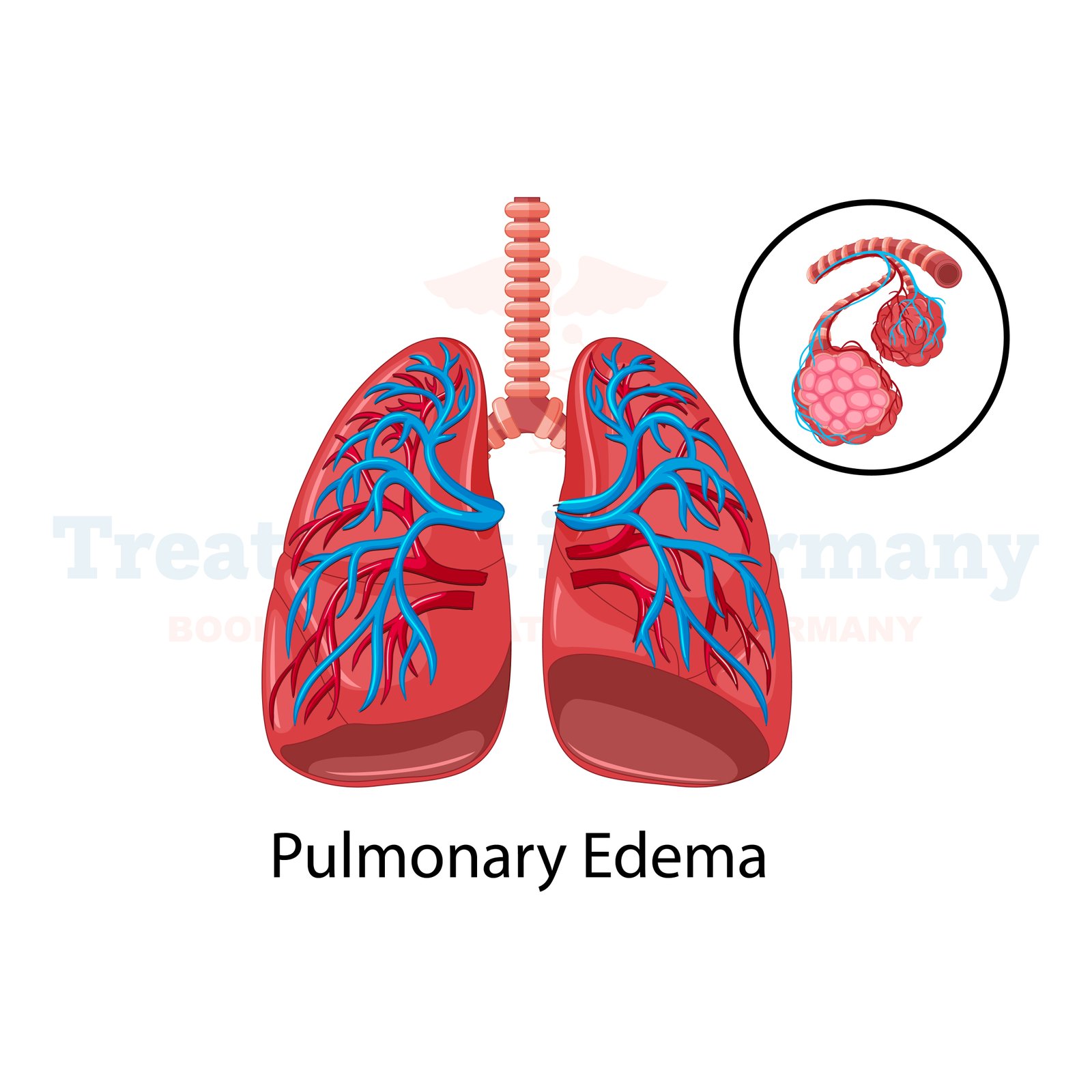What is Pulmonary Edema?
Pulmonary edema is a medical condition characterized by the accumulation of fluid in the air sacs of the lungs, leading to difficulty in breathing. This excess fluid makes it harder for the lungs to oxygenate the blood properly, causing symptoms such as shortness of breath, coughing, and in severe cases, even respiratory failure.
Side Effects of Pulmonary Edema:
The side effects of pulmonary edema can range from mild to life-threatening. Common symptoms include:
- Shortness of breath, especially when lying down or exerting oneself.
- Wheezing or coughing, often with pink or frothy sputum.
- Rapid, shallow breathing.
- Fatigue and weakness.
- Anxiety or restlessness due to difficulty in breathing.
- Bluish skin color (cyanosis) in severe cases, indicating a lack of oxygen in the blood.
- Chest pain or pressure.
Untreated or poorly managed pulmonary edema can lead to complications such as respiratory failure, heart failure, and even death.
How is Pulmonary Edema Diagnosed?
Diagnosing pulmonary edema typically involves a combination of medical history review, physical examination, and diagnostic tests. Your healthcare provider may:
- Review your symptoms and medical history to understand any underlying conditions or triggers.
- Perform a physical examination, including listening to your lungs with a stethoscope for abnormal sounds such as crackles or wheezes.
- Order diagnostic tests such as chest X-rays, echocardiograms, blood tests (to assess oxygen levels and heart function), and possibly a pulmonary function test to assess lung function.
- In some cases, additional tests like a CT scan or cardiac catheterization may be required to determine the underlying cause of the pulmonary edema.
Potential Treatments of Pulmonary Edema:
Treatment for pulmonary edema aims to relieve symptoms, remove excess fluid from the lungs, and address the underlying cause. Depending on the severity and cause of the condition, treatment options may include:
- Oxygen therapy: Providing supplemental oxygen to improve oxygenation of the blood.
- Diuretics: Medications that help the body remove excess fluid through increased urination.
- Vasodilators: Drugs that dilate blood vessels, reducing the workload on the heart and improving blood flow.
- Medications to improve heart function: In cases where heart failure is the underlying cause, medications such as ACE inhibitors, beta-blockers, or angiotensin receptor blockers may be prescribed.
- Mechanical ventilation: In severe cases of respiratory failure, mechanical ventilation may be necessary to support breathing.
- Treating the underlying cause: If pulmonary edema is caused by conditions such as pneumonia, heart failure, or kidney disease, treating the underlying condition is essential for long-term management.
👉 Contact us for further information and receive a
complimentary consultation.


.webp)
 (1).webp)

.webp)
 (1).webp)


.webp)
 (1).webp)

.webp)
 (1).webp)
